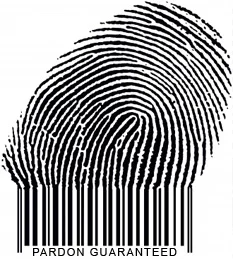La mission de l’Office Canadien de Pardon est d’aider toute personne ayant un casier judiciaire canadien à obtenir le Pardon canadien et la levée d’interdiction d’entrée aux États-Unis.

Canada Pardon Services specializes in assisting any person with Canadian criminal records to obtain the Canadian Pardon and the U.S. Entry Restriction Waivers.
Demandez votre Pardon Fédéral Waiver Américain

Nous nous engageons à faire preuve de transparence, d’intégrité et de responsabilité dans la réalisation de notre Mission. Nous croyons que la contribution d’un personnel aussi compétent que motivé est essentielle à la réalisation de notre Mission.
La loi américaine en matière d’immigration est très sévère en ce qui concerne les étrangers possédant un casier judiciaire. L’entrée aux États-Unis peut alors être refusée à ces personnes possédant un casier judiciaire.
Le Pardon, canadien ou d’autres pays ne vous donne pas automatiquement le droit d’entrer aux États-Unis. Les Etats-Unis ne reconnaissent pas le Pardon, ainsi, si un officier de douane américaine vous interroge sur vos antécédents, même si vous avez obtenu un Pardon, vous devez lui révéler l’existence de vos dossiers. En conséquence, si vous planifiez de vous rendre aux États-Unis, il vous sera nécessaire d’obtenir un Waiver.
Le Waiver est un papier officiel qui représente la permission accordée par le gouvernement américain aux personnes inadmissibles aux États-Unis d’y rentrer en toute légalité.
Les conséquences peuvent être radicales pour celui qui ignore ou qui prend le risque de voyager ou même de passer par le territoire américain sans avoir obtenu le Waiver . Vous pourriez être refusé aux frontières et vous faire saisir votre véhicule, vos biens, perdre votre billet d’avion, voire être détenu et déporté, et tout cela, même s’il s’agit d’un simple vol à l’étalage commis il y a longtemps chez le dépanneur du coin…
La demande de droit d’entrée aux Etats-Unis (le Waiver) peut être faite a n’importe quel moment et cette demande est adressée aux agents d’immigration et de protection de frontières.
L’attribution du Waiver est liée aux éléments suivants :
Le processus pour obtenir le Waiver est relativement long- il faut prendre en compte toutes les procédures et les démarches requises. Il est donc fortement recommandé de faire votre demande le plus rapidement possible, afin d’éviter les déceptions de dernières minutes.


No. Once you get the Pardon it is valid for all crimes showing on your criminal record, and all the offences are removed from the ICCP (the computer network of the RCMP).
The Pardon is no longer valid if you are accused of a new crime. If this is the case you would be entitled to apply for a second Pardon. Otherwise, your criminal record will remain sealed for ever.
Canada Pardon Services places at your disposal a consultation and assessment session. Its mission is to inform you and to offer appropriate solutions to your situation, for free, they are at your disposal to check your eligibility and how to proceed to guarantee your acceptance. The decision is easy, you just have to contact our consultants.
With the Pardon, all information and conviction information are removed from the computer system of the Centre for the Canadian Police Information and therefore this will help you find a job, keep your job, enjoy the normal rates of insurance, travel… ..
The Pardon may be revoked in the following cases:
Being convicted of a new crime; there is convincing evidence that the person rehabilitated does not behave well; there is convincing evidence that the rehabilitated person provided false information or inaccurate statements when applying for rehabilitation.

© Copyright 2025. Tous droits réservés.
In 1981, when he was a student at the university, Pierre Sévigny was taken in a story pyramid plan. « It’s a trick to make easy money. I was sent before the judge and I was sentenced for fraud. I had to pay a $2500 fine and I had a criminal record, « he says. To launder his reputation, Mr. Sévigny obtained a Pardon a few years later.
Businessman busy, he then travelled on numerous occasions to the USA. He also lived in Sweden for four years. But last March, U.S. Customs agents have refused to let him pass. « For whatever reason, they knew that I had already had a criminal record. They do not really want that I cross the border, « he says.
Mr. Sévigny was initially surprised by this refusal. « I repeated that I had obtained a Pardon, but customs officials were laughing. They said that the terrorists who blew up a nightclub in Indonesia had also obtained a Pardon. What ridiculous comparison! « Protests businessman.
Since customers were waiting in New York, Mr. Sévigny protested. « I said that I had not committed violent crime. I talked to my clients. I was finally passed with a special permit, but I’ve made it clear that henceforth I would be banned as I would not have the waiver, « he said.
Cases like that of Mr. Sévigny, the company Identification Canada sees more and more. « In addition to businessmen and travelers, those most affected by the tightening of border controls are truckers, » says co-owner of the company, Steeve Hollingworth.
For a truck driver, obtain a waiver is a real ordeal. « It’s so long! While waiting to have their waiver, drivers are forced to remain in Canada. If they still try to cross the border, their truck can be seized, « said Jean-Claude Fortin, chairman of the transportation company J.-E. Fortin, Saint-Bernard-de-Lacolle.
And even with their temporary permit, truck drivers are penalized. « At customs, they are automatically escorted out. They lose a lot of time and, in the trucking industry, every minute counts, « says Fortin.
The customs have assured him that the procedure would be amended in September. « I hope this will be done. Because, currently, a driver can be seriously penalized just because he stole a chocolate bar in his youth. «
Ariane Lacoursière
August 5, 2007 – 07h11
La Presse
Canadians with criminal records, or even some who have been finger printed but never convicted, may see themselves rejected when they tried to cross the US border.
The US department of immigration is dramatically increasing the control policy in the US borders; the risks of detention, deportation, and even incarceration have never been higher.
Due to the high volume of traffic between Canada and the U.S., there is often a false sense of security in citizens of both countries, that the chances of being caught are high due to the new control policy. Then, the results of being caught in the U.S. or trying to enter the U.S. with an undeclared criminal record can be severe and should not be ignored.
Once the Pardon is granted the person’s criminal record is sealed which means that it will not show up in the Canadian databases typically searched by law enforcement agencies on both sides of the border. However, the criminal record is not erased and can be disclosed or re-instated in the appropriate circumstances.
In terms of crossing the border, a Canadian Pardon has no value because it has no effect on records kept in the United States. Therefore if your criminal record has been entered into the U.S. system for any reason you may still be refused entry into the U.S. based on that criminal record even though the record has been sealed in Canada.
To gain legal entry into the U.S. with a Canadian criminal record it is therefore advisable to apply for a U.S. Travel Waiver.
In conclusion, the Canada/U.S. border is increasingly becoming more of a hurdle than a turnstile. Canadians with criminal records should spend some time investigating their options and the possible repercussions of ignoring the risks.